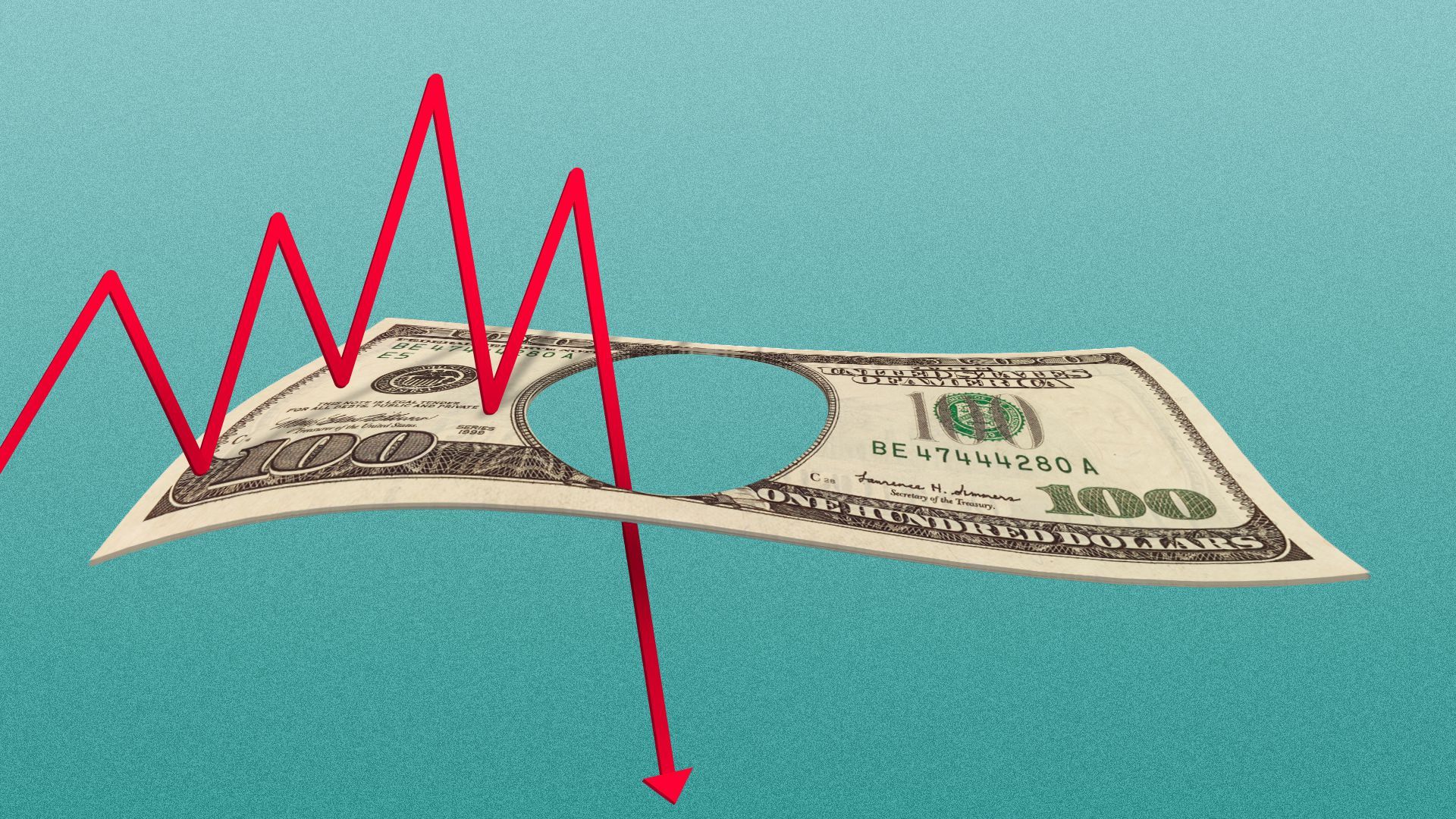The harm the Fed wants to avoid
Add Axios as your preferred source to
see more of our stories on Google.

Illustration: Annelise Capossela/Axios
Fed chair Jerome Powell isn’t in a hurry to dial back loose monetary policy because he doesn't want to cause “lasting harm” to the economy.
Why it matters: With the economy progressing, everyone wants to know when the Fed will taper its monthly purchases of $120 billion worth of bonds, an emergency policy intended to keep interest rates low and financial markets liquid during the pandemic.
Driving the news: Speaking at the Kansas City Fed’s Economic Policy Symposium in Jackson Hole on Friday, Powell reiterated his position that the Fed “could” begin to taper its asset purchases by the end of this year.
- He stopped short of formally announcing the timing and pace of that taper, in line with what economists were broadly expecting.
What they’re saying: Powell spent a good deal of his speech explaining why he thinks the forces driving up inflation in recent months are transitory. At one point, he even warned of the perils of dialing back loose monetary policy after misreading inflation signals, a discussion that multiple Fed-watching economists characterized as dovish.
- “If a central bank tightens policy in response to factors that turn out to be temporary, the main policy effects are likely to arrive after the need has passed,” Powell said. “The ill-timed policy move unnecessarily slows hiring and other economic activity and pushes inflation lower than desired.”
State of play: The personal consumption expenditures price index excluding food and energy (core PCE), is the Fed’s preferred measure of inflation and it was up 3.6% year over year in July. This is well above the Fed’s average inflation target of 2%.
- However, total employment remains about 5.7 million jobs below pre-pandemic levels.
- “Today, with substantial slack remaining in the labor market and the pandemic continuing, such a mistake [of an early policy move] could be particularly harmful,” Powell said. “We know that extended periods of unemployment can mean lasting harm to workers and to the productive capacity of the economy.”
The big picture: Despite all of this caution, Powell said “it could be appropriate to start reducing the pace of asset purchases this year” as the trajectory of the labor market suggests employment will continue to rise at a robust rate.
What to watch: The next U.S. jobs report will be released on Sept. 3. If the number is strong, we could hear the Fed announce the timing of tapering as soon as its next Federal Open Market Committee meeting on Sept. 22.
